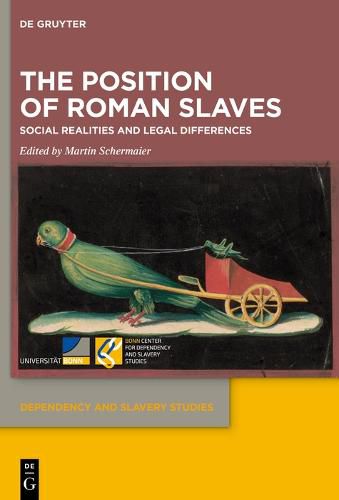Readings Newsletter
Become a Readings Member to make your shopping experience even easier.
Sign in or sign up for free!
You’re not far away from qualifying for FREE standard shipping within Australia
You’ve qualified for FREE standard shipping within Australia
The cart is loading…






This title is printed to order. This book may have been self-published. If so, we cannot guarantee the quality of the content. In the main most books will have gone through the editing process however some may not. We therefore suggest that you be aware of this before ordering this book. If in doubt check either the author or publisher’s details as we are unable to accept any returns unless they are faulty. Please contact us if you have any questions.
Slaves were property of their dominus, objects rather than persons, without rights: These are some components of our basic knowledge about Roman slavery. But Roman slavery was more diverse than we might assume from the standard wording about servile legal status. Numerous inscriptions as well as literary and legal sources reveal clear differences in the social structure of Roman slavery. There were numerous groups and professions who shared the status of being unfree while inhabiting very different worlds.
The papers in this volume pose the question of whether and how legal texts reflected such social differences within the Roman servile community. Did the legal system reinscribe social differences, and if so, in what shape? Were exceptions created only in individual cases, or did the legal system generate privileges for particular groups of slaves? Did it reinforce and even promote social differentiation? All papers probe neuralgic points that are apt to challenge the homogeneous image of Roman slave law. They show that this law was a good deal more colourful than historical research has so far assumed. The authors' primary concern is to make this legal diversity accessible to historical scholarship.
$9.00 standard shipping within Australia
FREE standard shipping within Australia for orders over $100.00
Express & International shipping calculated at checkout
This title is printed to order. This book may have been self-published. If so, we cannot guarantee the quality of the content. In the main most books will have gone through the editing process however some may not. We therefore suggest that you be aware of this before ordering this book. If in doubt check either the author or publisher’s details as we are unable to accept any returns unless they are faulty. Please contact us if you have any questions.
Slaves were property of their dominus, objects rather than persons, without rights: These are some components of our basic knowledge about Roman slavery. But Roman slavery was more diverse than we might assume from the standard wording about servile legal status. Numerous inscriptions as well as literary and legal sources reveal clear differences in the social structure of Roman slavery. There were numerous groups and professions who shared the status of being unfree while inhabiting very different worlds.
The papers in this volume pose the question of whether and how legal texts reflected such social differences within the Roman servile community. Did the legal system reinscribe social differences, and if so, in what shape? Were exceptions created only in individual cases, or did the legal system generate privileges for particular groups of slaves? Did it reinforce and even promote social differentiation? All papers probe neuralgic points that are apt to challenge the homogeneous image of Roman slave law. They show that this law was a good deal more colourful than historical research has so far assumed. The authors' primary concern is to make this legal diversity accessible to historical scholarship.